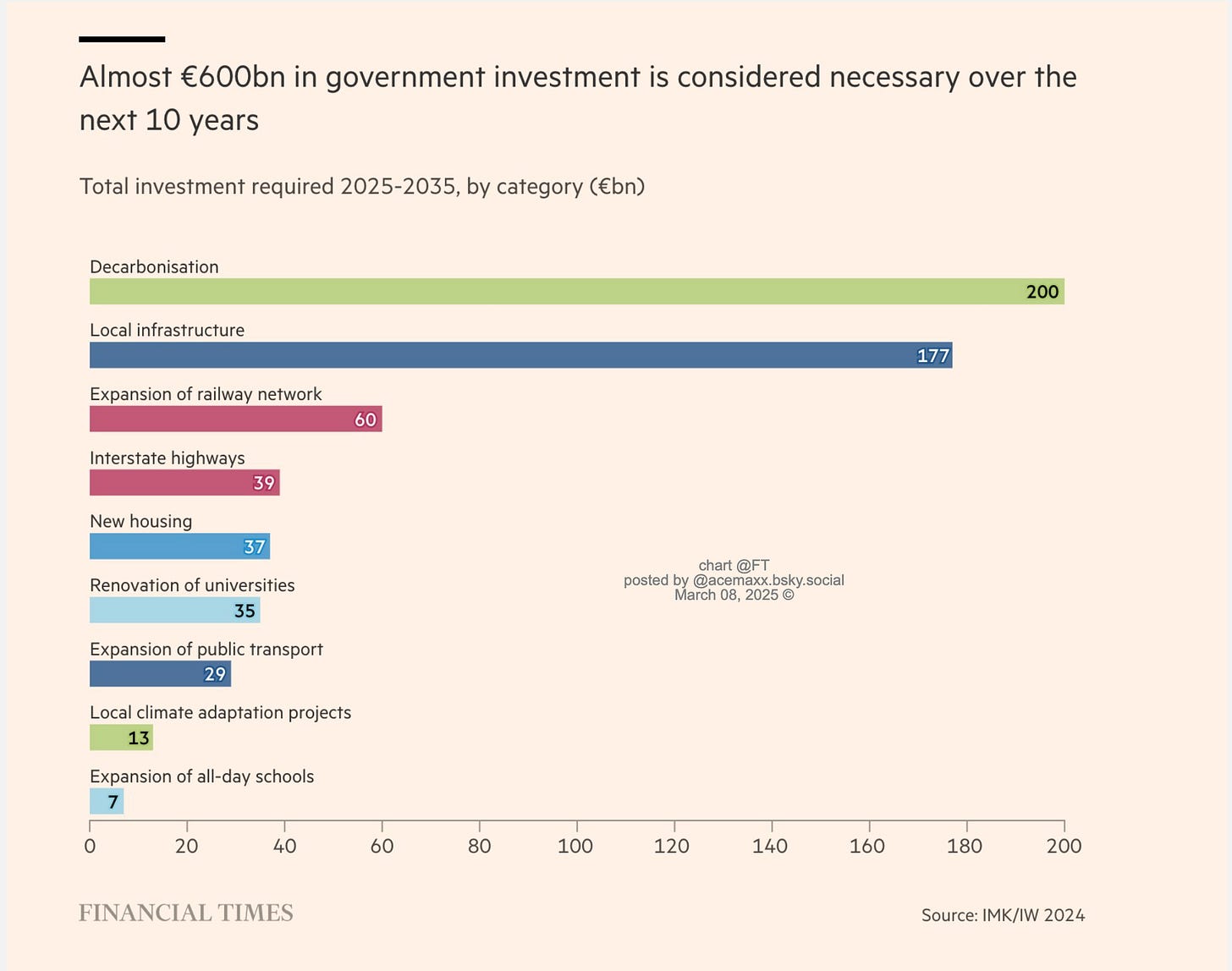Germany: More Work, More Productivity - But for What Reward?
Some rational responses to an imbalanced economy
Financial Times (FT) reports that a bleak demographics and short average work weeks could come to haunt Europe’s largest economy.
The British daily newspaper from London outlines why Germany’s new chancellor Friedrich Merz wants Germans to work more.
What is striking against this background is the current demand for more work and higher productivity in many advanced economies.
Yet, in industrialised countries, the push for more work hours and higher productivity has become increasingly difficult to reconcile with two parallel trends: wage stagnation and the growth of part-time or precarious employment.
As indicated by the FT, the number of people in jobs and the total hours worked across the German economy rose to yet another all-time high in 2024, in part due to immigration as the number of foreign workers over the past decade almost doubled to 6.3mn.

Yet average working hours per employee fell to a record low last year, when excluding the Covid pandemic year of 2020. Germany has the shortest average working hours of any wealthy economy, according to OECD data.
The share of part-time workers has more than doubled to 30% of the labour force since the early 1990s - mainly driven by women.
A growing share of the labor force is engaged in part-time, temporary, or gig-based employment, often involuntarily. These jobs typically come with lower pay, fewer benefits, and limited career progression.
As a result, the aggregate demand for labor may rise, but it's fragmented and insecure- discouraging long-term commitment from workers and lowering their bargaining power.
In Germany, stagnating real wages have undermined the traditional social contract. Workers are expected to do more, produce more, and remain flexible, but the economic gains are not shared evenly.

This decoupling of productivity and pay erodes motivation and trust, especially among younger and lower-income workers who no longer believe that "working hard" guarantees upward mobility.
Employers and policymakers often emphasize efficiency and competitiveness, pushing for automation, digitalization, and lean staffing. But when this happens without adequate wage growth or job security, it breeds resentment and political instability (see the rise of the AfD).
When workers see little reward for increased effort, they may withdraw effort or exit the labor force entirely (e.g., via “quiet quitting,” early retirement, or reduced participation).
This undermines the very productivity gains that industrial economies are chasing.
To break this cycle, industrialised countries need to:
Re-link productivity to wages,
Invest in job quality,
Redefine productivity to include well-being and sustainability, not just output per hour.
In short, the current demand for more work and higher productivity looks increasingly unsustainable unless accompanied by fairer compensation and better job security.


